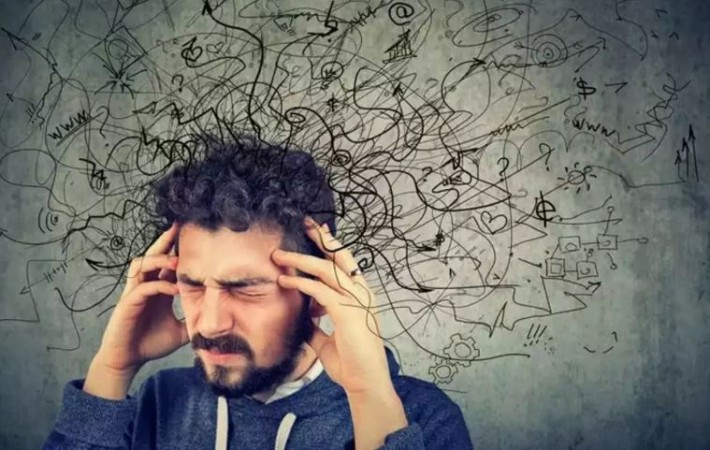
In today's fast-paced world, stress has become a common part of life, affecting almost everyone. While it's normal to experience stress, its excessive presence can cast a shadow over every aspect of one's life. Symptoms like irritability, fatigue, mood swings, and changes in behavior are common signs of stress. If not addressed, prolonged stress can even lead to depression. However, the good news is that there are steps one can take to reduce stress within 24 hours.
1. Importance of Proper Nutrition
A well-balanced diet is fundamental to overall health, and its impact on stress management is profound. Proper nutrition provides the body with essential nutrients required for optimal functioning, both physically and mentally.
Scientific Insights:
Research indicates a strong correlation between dietary choices and stress levels. Certain foods, particularly those rich in healthy carbohydrates, vitamins, and minerals, play a pivotal role in regulating stress hormones and neurotransmitters. Understanding the physiological mechanisms behind these connections is crucial for effective stress management.
Practical Tips:
Guidance on crafting a stress-relieving diet will be provided, emphasizing the importance of regular meals, hydration, and mindful eating. Real-world examples and meal plans will help readers implement dietary changes effectively, promoting overall well-being.
2. Cultivating the Habit of Exercise
Exercise is a well-established tool for stress reduction, with benefits extending beyond physical fitness to mental well-being. Engaging in regular physical activity has a profound impact on neurotransmitter release, mood regulation, and overall stress resilience.
Scientific Insights:
We will explore the physiological and neurological changes that occur during exercise, delving into how activities like walking, jogging, swimming, and yoga influence stress hormones. The role of endorphins, often referred to as "feel-good" hormones, in mitigating stress will be highlighted.
Practical Tips:
Readers will receive practical advice on incorporating exercise into their daily routines, regardless of time constraints. The guide will address varying fitness levels and preferences, ensuring that everyone can find an activity that suits their lifestyle.
3. Prioritizing Digestive Health
Stress often manifests in unhealthy eating habits, adversely affecting digestive health. Understanding the intricate connection between stress and the gut is crucial for comprehensive stress management.
Scientific Insights:
The gut-brain axis, a bidirectional communication system between the gastrointestinal tract and the central nervous system, plays a significant role in stress responses. We will explore how stress impacts digestive processes and, in turn, how gut health influences mental well-being.
Practical Tips:
Expert recommendations on dietary choices, including the incorporation of probiotics and prebiotics, will be provided. Lifestyle changes to support digestive health, such as mindful eating practices and stress-reducing activities, will also be discussed.
4. Taking a Break – The Power of Switching Off
Constant connectivity in the digital age contributes significantly to heightened stress levels. Taking breaks from technology and daily stressors is crucial for mental rejuvenation.
Scientific Insights:
We will delve into the cognitive and psychological impacts of constant connectivity, exploring the science behind the need for mental breaks. Understanding how brief pauses from technology can enhance focus, creativity, and overall well-being will be highlighted.
Practical Tips:
Readers will gain insights into creating digital detox routines and incorporating short breaks into their day. Techniques for mindfulness and relaxation, even in the midst of a hectic schedule, will be outlined.
5. Embracing Quality Sleep
Quality sleep is foundational for stress recovery, yet it is often compromised in stressful situations. Understanding the intricacies of the sleep cycle and its relationship with stress is vital.
Scientific Insights:
We will explore the different sleep stages, emphasizing the role of REM (Rapid Eye Movement) sleep in emotional processing and stress regulation. The impact of sleep deprivation on stress hormones and cognitive function will be explained.
Practical Tips:
Practical advice on creating a conducive sleep environment, establishing bedtime rituals, and addressing common sleep disruptions will be provided. Readers will learn actionable steps to improve the quality and duration of their sleep.
In conclusion, this comprehensive guide has provided an in-depth exploration of expert-recommended strategies to find relief from stress within a 24-hour timeframe. By understanding the science behind proper nutrition, exercise, digestive health, technology breaks, and quality sleep, readers can gain valuable insights into the interconnected nature of these strategies. The incorporation of scientific evidence, practical tips, and real-world examples ensures that individuals can proactively manage stress and enhance their overall well-being effectively. By embracing these expert-recommended strategies, readers can take control of their stress levels and cultivate a healthier, more resilient lifestyle.
First Case of JN. 1 Sub-Variant in Kerala: Health Minister Stresses No Need for Alarm